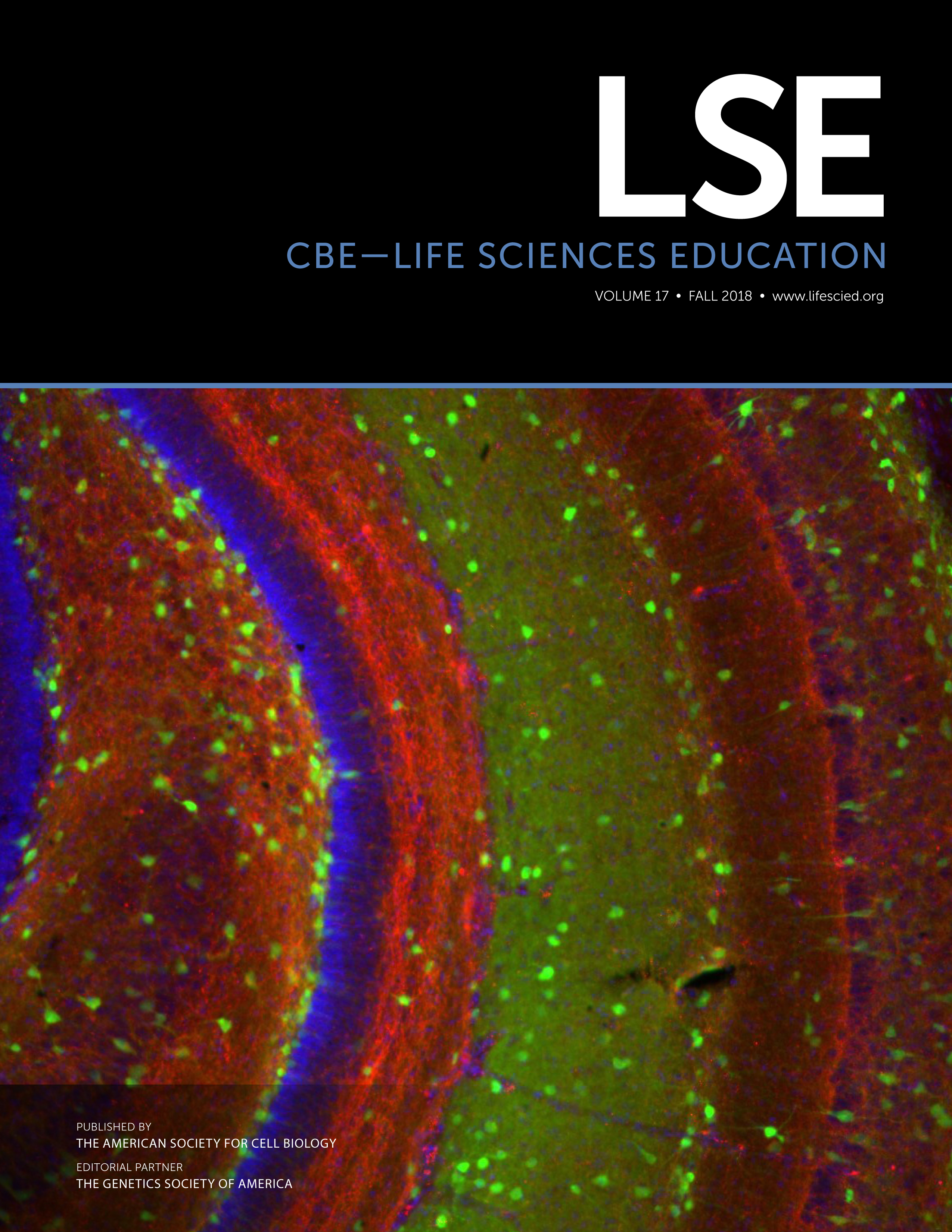Faculty Beliefs about Intelligence Are Related to the Adoption of Active-Learning Practices
Abstract
Mounting evidence of the efficacy of active learning has prompted educators to consider adoption of these practices in college-level classrooms. One tenet of active learning is that most, if not all, students have the ability to learn. Instructors’ perspectives on learning, however, may or may not be aligned with this. One belief held by some educators is that intelligence is fixed, that is, some students are more intelligent and have a higher ability to learn than others. Instructors with a fixed mindset may not be convinced that their investment in developing active-learning materials will be as fruitful as the education evidence suggests, because these instructors may not believe that most students can grow in their learning. Here, we explored the relationship between fixed mindsets and the adoption of active-learning strategies. We found that instructors with higher fixed mindsets were less persuaded that active-learning strategies were a good idea and less likely to implement the teaching practices. Our research suggests that development initiatives should explicitly address educators’ lay theories of intelligence (fixed or growth mindset) to support successful implementation of active learning.



